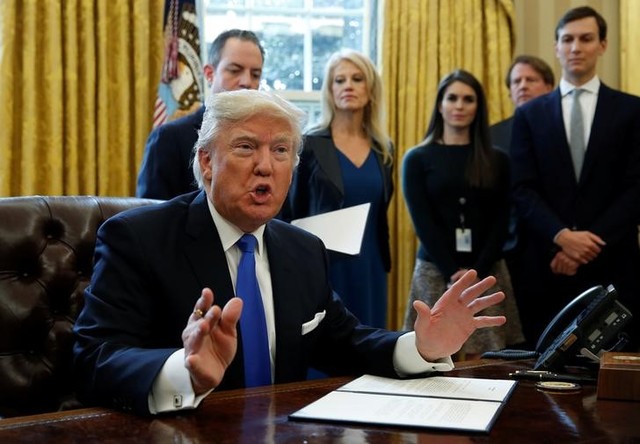Deadly U.S. raid may bolster Yemen’s al Qaeda – Crisis Group


By Reuters
A commando raid approved by new U.S. President Donald Trump this week may have given al Qaeda in Yemen a propaganda boost in killing civilians, the International Crisis Group (ICG) said in a report on Thursday.
Local medics said 30 people including 10 women and children were killed in the helicopter-born Navy SEAL attack on a cluster of houses in Yemen’s southern al-Bayda province.
Al Qaeda said in a statement that a senior leader and an unspecified number of other militants were killed. One U.S. soldier died in the assault, and a Pentagon spokesman alleged some of the women were firing at the U.S. force.
“The raid … is a good example of what not to do,” ICG’s senior Arabian Pensinsula analyst April Alley wrote.
“The use of U.S. troops and the high number of civilian casualties … are deeply inflammatory and breed anti-American resentment across the Yemeni political spectrum that works to the advantage of AQAP,” she added.
Nearly two years of civil war in the impoverished Arabian Peninsula country has allowed local branches of al Qaeda and Islamic State to expand and carry out new attacks within Yemen.
Al Qaeda in the Arabian Peninsula (AQAP) is one of the global militant group’s most active branches. It unsuccessfully plotted to blow up U.S.-bound airliners and claimed responsibility for a 2015 shooting at the satirical Charlie Hebdo magazine in Paris.
Former President Barack Obama repeatedly killed top leaders in the organisation with unmanned drone attacks but, ICG said, that strategy may not ultimately defeat it.
“It is too early to determine what, if any, broader strategy the Trump administration has in Yemen … (But drone strikes) have failed to stop its rapid growth – in large part because the opportunities provided by the war outstrip its losses.”